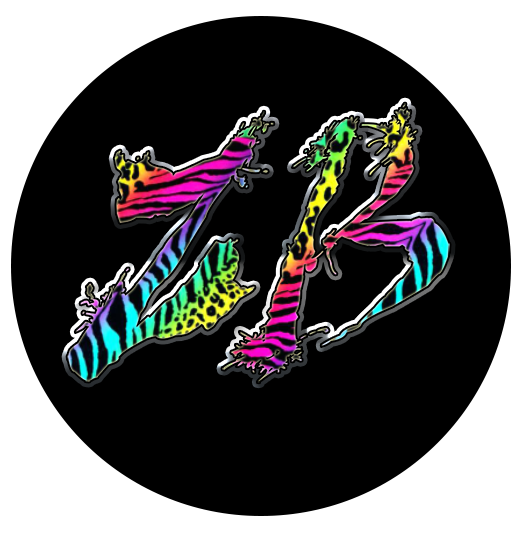The problems are bad, but the takes are worse.
Joker (2019)
Rating: 🤡🤡🤡/5 Societies
I don’t know why god spared me this Joker’s Weekend. Perhaps it’s my role as bringer of truth and light in an age of darkness and lies. Surely a higher power must have been watching over me, as I miraculously escaped being one of what I’m sure were thousands of casualties. My failure to transform into a twisted nihilist bent on blood and mayhem was also almost certainly due to divine intervention. In fact, I didn’t die or have a single homicidal urge even once during or after Todd Phillip’s Joker.

If anything, the failure to have my life catastrophically altered by the cartoon clown movie was the most interesting part of the cartoon clown movie. The meta-narrative around Joker in the months preceding its release has been one of moral panic. A panic that steadfastly refuses to examine anything beyond the superficial signifiers of an ongoing culture war. You’ve likely seen the pre-release takes, but a sampling is in order:
Joker will infect people’s brains and make them do massacres
Joker is dangerous, and making people more twisted
The constant drumbeat of fear mongering even led to several government agencies releasing warnings about the potential for violence
A hypothetical potential for violence that was made real when the media driven panic resulted in an increased police presence at movie theaters across the country.
A wholly manufactured threat that led to several very real theater panics with very real consequences for the admittedly tone deaf people involved.
Yet, in spite of all the doomsaying and fear mongering no actual instances of terror or violence materialized. So if Joker wasn’t the catalyst for the incel insurrection, what exactly is it?

Joker is, first and foremost, a remarkably mediocre movie elevated by an exceptional performance. Joaquin Phoenix is the sole reason that this movie, which would otherwise be a hamfisted pastiche of Scorsese and New Hollywood era films, is worth paying the ticket price to see in theaters.
Aside from the question of “is it a good film?” we find the much more exhausting and pointless question of “does it have good politics?”, which is unfortunately a complicated answer.
Joker’s politics are very nearly as bifurcated as the opinions of people who’ve yet to see the film. It opens on a decaying urban wasteland of early 80’s Gotham. Our titular protagonist, freshly released from a state run psychiatric hospital, lives in poverty, sharing a bed with his elderly mother. He works as a party clown down at the clown depot which is apparently something that we’re supposed to suspend our disbelief about and assume is a totally reasonable thing to exist in this ostensibly realistic world.

Deprivation and entropy seem to be the animating forces in Joker’s Gotham. He’s assaulted by rowdy youths while spinning a sign for a store that’s going out of business. The streets are strewn with trash due to a sanitation strike. The state social worker/therapist he sees is beaten down, has lost all faith in the ability of government to provide for those in need when she informs him their funding has been cut.
A fat italian clown gives Joker a gun and racistly cautions him about the “animals” out in the streets after his assault.
The world of the Joker is an indictment of austerity. It’s an accusing finger pointed at those with, supposedly, on the behalf of those without. A world where the hungry poor can’t get medical treatment, but have guns thrust upon them as a leg up in the fight for scraps.
Every scene is submerged in the material reality of an all consuming alienation. Connection is nowhere to be found in the streets of Gotham. Not on the bus, or at work, or in the home. Everyone and everything is at an eternal remove. The only relief from it is in the realm of fantasy. A parasocial relationship, and a wholly imagined romance.
The disarray and misery of the streets is starkly contrasted with the opulence of the city’s uppercrust, and the cold indifference of its foremost citizen Thomas Wayne, who characterizes the poor as “clowns”. He’s later seen at the premier of a typically elite frivolity; ironically Charlie Chaplin’s Modern Times, accompanied by a full orchestra. A heavy handed, but effective bit of symbolism.
Philips dutifully beats this drum throughout the film.
Joker lives in the projects.
“The problems are bad”
Joker can’t get his medication.
“The problems are bad”
Joker lost his job.
“The problems are bad”
Joker is lonely.
“The problems are bad”
Joker is spit on by the rich and powerful.
“The problems are bad”
Philips has an awful lot to say about how bad the problems are. If that was your primary take away you might even go so far as Michael Moore and say not only is Joker not dangerous, it’s a masterpiece. After all, between Phoenix’s incredible performance, and the dearth of movies addressing issues of class so directly, it might just be novel enough to hear that bad things are in fact bad.
But Philips, unfortunately, does not stop with the problems being bad. He has thoughts about addressing those problems that are less than clear. While he takes great pains to disavow the extraordinary violence the Joker metes out, he simultaneously makes two implications that undercut what would otherwise be an enthusiastically left wing message.
Both are wrapped up in the that same violence he goes so far to condemn. First, that a grassroots protest movement against austerity would be inspired by the Joker’s violence to its own bouts of anarchic carnage. Images of what can only be interpreted as black clad “antifa” enthusiastically rioting in celebration of Joker’s public, almost ritualized, violence.

A truly ironic and damning conclusion in light of the accusation levelled by media of this very film as an inspiration or incitement to violence.
The second implication is the logical conclusion of the first. That the angry and rabid masses are incapable of coherent thought or action. That they are only capable of destruction. That they are so devoid of will or intellect that they latch on to any leader who will allow or enable them to act on the rage they’ve been nurturing in the face of all those bad things.
Joker, at its heart, isn’t a leftwing masterpiece. Nor is it an incel love letter. The most twisted thing about Joker is its centrism.

The moral of the story is that populist rage leads to Trump and it leads to Antifa, and that these things are the same. It wags its finger at the uncaring and oblivious elites who got us into this mess while excoriating the masses as malleable rubes who turn to the Joker not for salvation but revenge.
Perhaps if we’re being kind that can be interpreted as a warning to political elites that blocking change may come at a price.
On the other hand, the rabble need to let the smart and capable adults fix the problems caused by the bad elites.
I look forward to seeing Todd Phillips at the Amy Klobuchar Pete Buttigieg Joe Biden Elizabeth Warren rally.


Jean Krill is is the co-editor and co-founder of Zero Balance. His writing navigates the many disparate visions of a radically better future.

